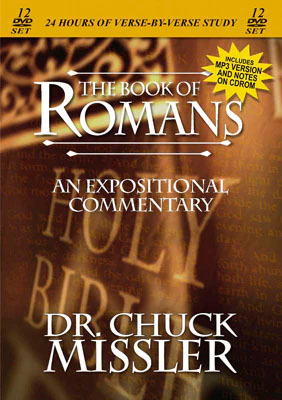Originally Published by Chuck Missler on January 1, 2000.
Keeping Promises
The “Peace Process” grinds on as the world continues to align itself against Israel and our government continues to stiff our only ally in the Middle East. As politicians continue to meddle in the region, we need to remember the Biblical basis of Israel’s right to the land. It doesn’t belong to the Palestinians… or to the UN… or to the U.S… or even Israel! It is the Lord’s.
In a larger sense, “the Earth is the Lord’s and the fullness thereof.”1 And yet, it is strange to realize that God has singled out a particular piece of real estate for His own special purposes and put His name on it.
Place your finger in your Bible at Genesis Chapter 12. Place another finger at Acts Chapter 2. Now pick it up by the pages between your two fingers: what you have between those two fingers — most of the Bible — is all about Israel!
And God has made certain covenants with Israel. It comes as a shock to many to discover that all our rights and privileges — even as a Church — derive from these covenants. We need a doctrinal as well as devotional understanding of the Word of God, so we need to fully understand these irrevocable commitments.
God has made some irrevocable, unilateral commitments — formal covenants or promises — and one of His most essential characteristics is that He delights in making and keeping His promises. One of the most disturbing shortcomings of many modern churches is their failure to appreciate the seriousness of these covenants. There are four, in particular, that are vital for an understanding of both the Old and New Testaments: The Abrahamic Covenant, the Palestinian Covenant, the Davidic Covenant, and the New Covenant.
Abrahamic Covenant
It may come as a surprise to realize that Abraham was a Gentile when this covenant was first made!2 It first occurs in Genesis Chapter 12, and includes seven3 “I Wills”:
- And I will make of thee a great nation,
- and I will bless thee,
- and make thy name great;
- and thou shalt be a blessing:
- And I will bless them that bless thee,
- and curse him that curseth thee:
- and in thee shall all families of the earth be blessed.
From these “Seven I Wills” flow God’s entire plan for all of mankind-including you and me! All other covenants build on this one. Items 5 & 6 are the basis for the “Sheep and Goat Judgment” of the nations in Matthew 25:31–46, which closes the “times of the Gentiles.” God foreknew Satan’s anti-Semitism. All history is patterned and destined after this reality (cf. Zech 2:8). This also indicates that the Church will not be in the Tribulation, as this judgment emphasizes the distinction between Jew and Gentile. It will be the Discriminator during the Tribulation period (cf. Rom 10:12; Col 3:11, et al).
Item 7 is alluded to by Christ when He was talking with the woman at the well in Samaria, when He declared, “Salvation is of the Jews.”4 There is no other such promise to any other people! So how do we get our benefit from this covenant? We rely entirely on our derivative benefit from the Root of David, the Lion of the Tribe of Judah, Yeshua HaMeshiach, Jesus the Messiah.
Formally Solemnized
This covenant was confirmed by the most solemn procedure known at the time. When two participants wanted to confirm a solemn oath, they would participate in a ritual in which a blood sacrifice would be divided into two parts, and both would walk between the elements in a Figure–8, repeating the terms of the agreement.5 The Hebrew word for covenant, berith, comes from the verb, barath, which means to “cut”; “to cut a covenant.”
In Genesis 15:6–21, God performs just such a solemn ritual, but first puts Abraham in a deep sleep, and is then seen passing between the pieces alone, signifying the unilateral nature of the unconditional covenant. The imagery itself is interesting: God was represented by a metalsmith’s kiln6 and a burning torch.7
The key point that God is making is that the covenant was unilateral: there was no commitment required of Abraham; he was in a deep sleep at the time. It was entirely by grace; no performance was required.
Unconditionality Confirmed
This covenant was expressly declared eternal, and is therefore unconditional.8 Furthermore, it was reconfirmed by an oath!9
It was also confirmed by the birth of Isaac and Jacob, and to both of whom the promises are repeated in their original form.10 (It is extremely significant that the later reiterations of the covenant are in spite of acts of disobedience.)
The New Testament also declares the Abrahamic Covenant to be immutable and unchangeable.11
So What?
So why is this passage so critical for us to understand? There are at least two important reasons:
- The Possibility of National Judgment. As one recognizes the moral free-fall of our own nation, and the fact that we have come to represent all that God abhors, the question is frequently asked, “Will God judge America?” Or even, “Why hasn’t God judged America already?” These are serious questions. A common explanation is because of the Abrahamic Covenant! Genesis 12:2–3 is still in effect. “I will bless them that bless thee.” One can profile the destiny of nations and empires by their treatment of the Jews. Where is the British Empire today? Where is the Third Reich today?
The disturbing implications of this perspective is that America appears to be turning its back on Israel. While “He that keepeth Israel neither slumbers nor sleeps,”12 we may be removing the very shield from an overdue judgment by ignoring this ancient commitment of the Creator Himself.
- Endemic Heresies. Another reason we need to be clear on the irrevocability of God’s commitments in these covenants is due to the false teaching that has permeated many of the modern churches. There is a view that Israel “forfeited her promises” by rejecting her Messiah, and that these promises now devolve somehow symbolically, or allegorically, upon the Church.13 This is the very heresy that led to the Holocaust. And the rise of this same heresy again in these days will lead to the next one. And the next one will be far more severe than even the previous disaster. The Holocaust in Europe destroyed one Jew in three. The next one will destroy two out of three.14
There are many dangers in not taking the Word of God seriously. And there are many ways of not taking it seriously: one can ignore it; one can disbelieve or deny it; or, one can dilute its meaning by conjectures, allegories, or redefinitions. But God says what He means, and means what He says.
Furthermore, these 66 books, although penned by over 40 authors over thousands of years, are an integrated design: every detail is intricately tied to everything else. It is imperative for us to understand each part in its relation to the rest in its entirety. The Abrahamic Covenant is an immutable prelude to the other covenants and the foundation upon which God’s destiny for you and me rests.
This article was excerpted from our study in Paul’s Epistle to the Romans, available on the K-House Store.
Notes:
- Psalm 24:1; quoted in 1 Corinthians 10:26, et al. ↩
- He became circumcised in Chapter 17. This covenant was made in Chapter 12, and solemnized in Chapter 15. ↩
- Four direct, and three understood. ↩
- John 4:22. ↩
- Cf. Jer 34:18. ↩
- Cf. 1 Pet 1:7. ↩
- Deut 4:24; 9:3; Heb 12:29. ↩
- Gen 17:7, 3, 13, 19; 1 Chr 16:17; Ps 105:10. ↩
- Gen 22:15–18; 26:2–5; Cf. Heb 6:16–18. ↩
- Gen 17:19; 26:2–5; 27:26–29; 28:4, 11–15. ↩
- Heb 6:13–18; (cf. Gen 15:8–21). ↩
- Psalm 121:4. ↩
- For a more comprehensive contrast between Israel and the Church, see our Briefing Pack, Israel and the Church: The Prodigal Heirs. ↩
- Cf. Zech 13:8, 9. ↩







